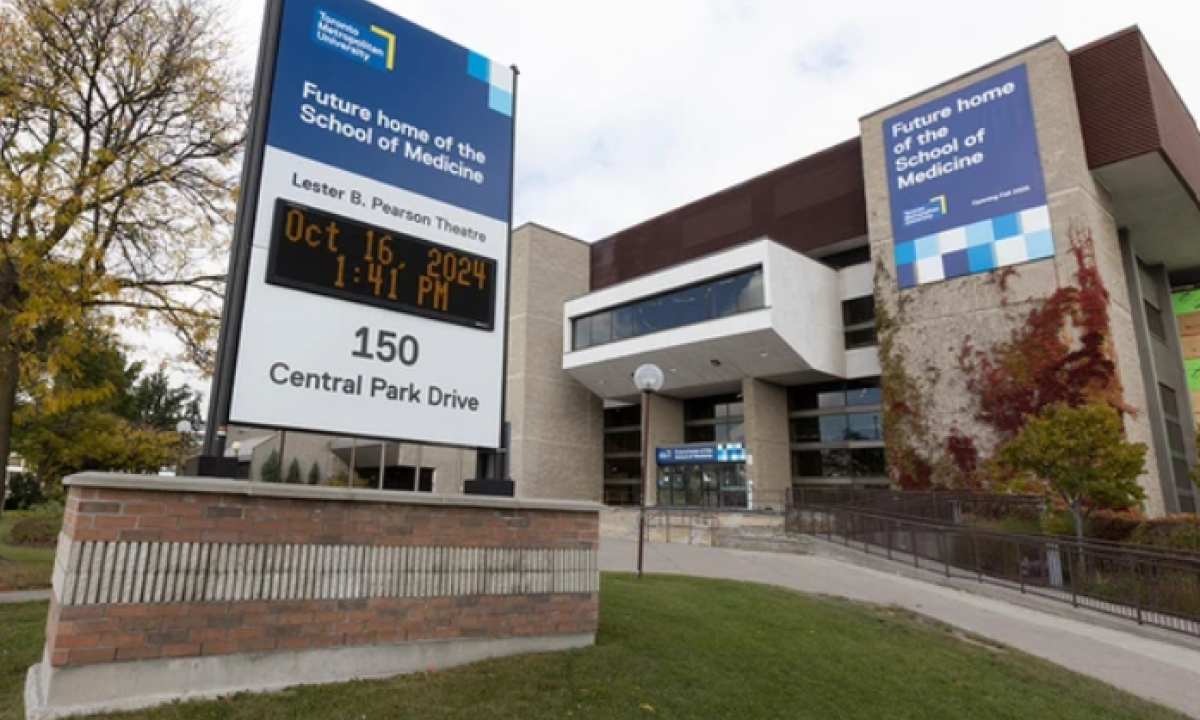Shaping Tomorrow's Healthcare: The Role of Diversity in TMU’s New Medical School

Toronto Metropolitan University (TMU) recently announced the opening of its new medical school, set to welcome its first cohort in 2025. With 94 undergraduate spots and 105 postgraduate residency positions, the school’s launch marks a significant expansion in Canada’s medical training capacity. Given the pressing need for more healthcare providers in our communities, this development is an important step forward. However, TMU’s diversity-focused admissions approach has drawn mixed responses and sparked broader discussions around healthcare equity and educational standards.
According to recent coverage in the National Post, TMU’s admissions approach faces significant criticism, suggesting that prioritizing diversity, equity, and inclusion (DEI) over traditional academic metrics, such as higher GPAs and MCAT scores, may affect the quality of future healthcare providers. While the university’s goal is to create a healthcare workforce reflective of Canada’s diverse population, concerns have been raised about the potential impact of these DEI-focused policies on academic standards, as TMU uses GPA only as an application criterion rather than a selection factor, and it dismisses the MCAT, viewing it as biased. The National Post argues that this approach could compromise the selection process, prompting debate about whether it lowers the bar for future medical students or establishes a foundation for a truly inclusive healthcare system.
As community advocates, the Collective sees value in initiatives that increase access to education for marginalized groups, especially within critical fields like healthcare. A diverse healthcare workforce can be particularly effective in responding to the varied needs of Canada’s population, which includes individuals who face racial, economic, and geographic barriers to care. However, we also recognize the importance of ensuring that the next generation of doctors is equipped to meet the complex demands of modern healthcare.
Our region deserves a healthcare workforce that reflects its diversity and upholds the highest standards of care. At the Collective, we envision a healthcare environment where every physician is both highly skilled and deeply connected to the communities they serve. We hope TMU and other institutions will continue to engage with community voices to shape policies that balance inclusivity and excellence. Together, we can work toward a healthcare system where equity and quality coexist, reinforcing our shared mission to address discriminatory practices and build a thriving, equitable Peel Region.
Join the Conversation: What’s Your Take?
How might this approach affect students and future healthcare professionals in Peel? Will it open up new opportunities or present challenges that students will need to navigate? We invite you to join the conversation on our platform. Share your thoughts on what TMU’s admissions policies mean for our community and the future of healthcare. What are your hopes or concerns, and how can we work together to support both equity and quality in education and healthcare? Let’s explore these questions as a community and contribute to shaping meaningful change.
I think this is very…
I think this is very important, as a minority myself I think having a diverse medical school is very important as representation matters!
Representation Matters
I believe too much emphasis is being placed on the initial application process. There has been no indication that the curriculum itself will change—only the application process and requirements. The program would remain just as rigorous as any other North American medical school. If anything, this change could make our doctors even more prepared to address societal needs, as it emphasizes a deeper understanding of systemic inequities. Ultimately, it promotes greater diversity in the medical field. Representation matters.
Let’s focus
Considering the lack of representation in Canada’s healthcare system. I believe TMU is heading towards the right direction. As a minority in the healthcare field, I see first hand how frustrated patients get when there is such a lack of representation. Although test scores matter that’s not all that matters when it comes to advancing the healthcare system.
Beyond academic metrics
I believe TMU has recognized the importance of looking beyond academic metrics and is working to implement an admissions process that values other factors directly correlating with the quality of care a physician can provide—qualities that come only through a commitment to DEI. This article prompted me to review the school’s admissions criteria, which seek individuals who are deeply connected to and committed to their communities. Once accredited, the education provided by TMU will be on par with other Ontario medical schools. At that point, TMU will have successfully paved the way for quality and equity to coexist.
A step forward
MU’s commitment to diversity and inclusivity in their new medical school is a step forward, especially as it aims to address the unique healthcare needs of Canada’s diverse population. A medical workforce that mirrors the communities it serves can lead to more compassionate and culturally-sensitive care, which is crucial in breaking down barriers to quality healthcare access.
Bold Move by TMU
We congratulate TMU for making the bold move to ensure that the applicants reflect the diversity where the school of medicine will be located. Hopefully, many of the graduates of the program will stay within the community and continue to serve the residents. I agree with the others who shared their comments that diversity and equity do not mean a dilution in quality and excellence. What TMU is doing is removing unnecessary barriers to admission, giving more opportunities to exceptionally gifted students who have the acument to succeed.






Comment